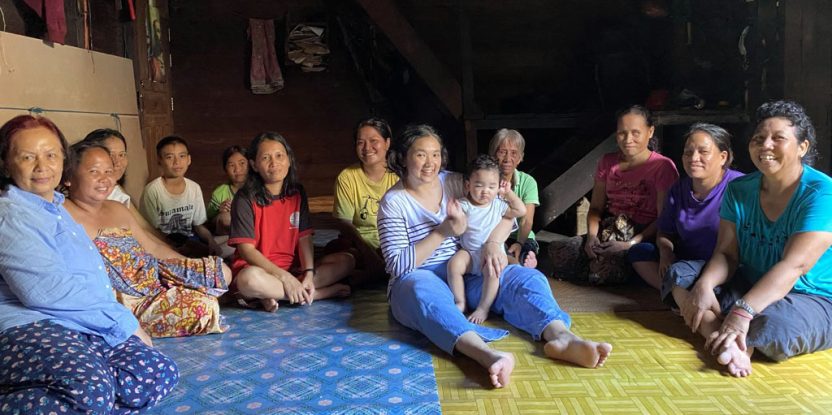
Curious to know what it’s like to bring a baby to remote areas while Mom conducts research? How can a female scientist succeed in a male-dominated society? How a woman stays safe during field work? In a series of five blog posts to mark International Women’s Day 2024 on 8 March, five women scientists-researchers working with the COLANDS initiative – Collaborating to Operationalise Landscape Approaches for Nature, Development and Sustainability – answer these and many other questions about working as researchers and academics. Their responses have been edited for clarity and brevity.
Augusta M. Anandi is a PhD candidate at the University of Amsterdam Institute for Social Science Research (AISSR). Her research area is in Indonesia, focusing on customary arrangements, multi-stakeholder platforms and integrated landscape approaches. Augusta, who is based in Indonesia, holds a Master’s degree in environmental policy and management from the University of Adelaide, South Australia.
She told Forests News:
“Bringing your child to work has special challenges when your career involves field research in remote areas of Indonesia and your child is less than one year old. But that’s what I did, returning to my PhD fieldwork in Indonesia’s Labian-Leboyan sub-watershed with my daughter and husband. It proved to be a test in juggling competing demands, yet also rewarding for many reasons.
My daughter Kalila – 10 months old when I returned to fieldwork in February 2022 – quickly became known by the friendly nickname Si Kiting, or Curly Baby, because of the thick black curls of her hair. I discovered she was an excellent ambassador for my work. People who might have been stiff or sceptical of me alone were welcoming and responsive when they saw Kalila. My family joined me during interviews with locals in an upstream village in one of many bilik (house units) of the village longhouse. Every woman came by to see Kalila, making interviews much easier to organize.
Through all of my varied field experience, I learned that although it is challenging to bring a family, it’s also rewarding for my work because I can better focus by feeling secure in knowing my baby is nearby; and people appreciate when she is there. I had a positive example some years earlier when a colleague continued her research in the field in Kalimantan while pregnant; the scientist returned to the field a year later with her one-year-old son.
I encourage other young women: If you want to pursue a higher level of education and carry out field work, family is not a reason to stop. Kids are proud of their moms working and doing research.”
Acknowledgements
COLANDS is part of the International Climate Initiative (IKI) and is funded by the German Federal Ministry for the Environment, Nature Conservation and Nuclear Safety (BMU). PhD research that is part of COLANDS is hosted at the Institute for Social Science Research of the University of Amsterdam and the University of British Columbia.
For more information about COLANDS’ work, please contact James Reed at J.Reed@cifor-icraf.org.
We want you to share Forests News content, which is licensed under Creative Commons Attribution-NonCommercial-ShareAlike 4.0 International (CC BY-NC-SA 4.0). This means you are free to redistribute our material for non-commercial purposes. All we ask is that you give Forests News appropriate credit and link to the original Forests News content, indicate if changes were made, and distribute your contributions under the same Creative Commons license. You must notify Forests News if you repost, reprint or reuse our materials by contacting forestsnews@cifor-icraf.org.